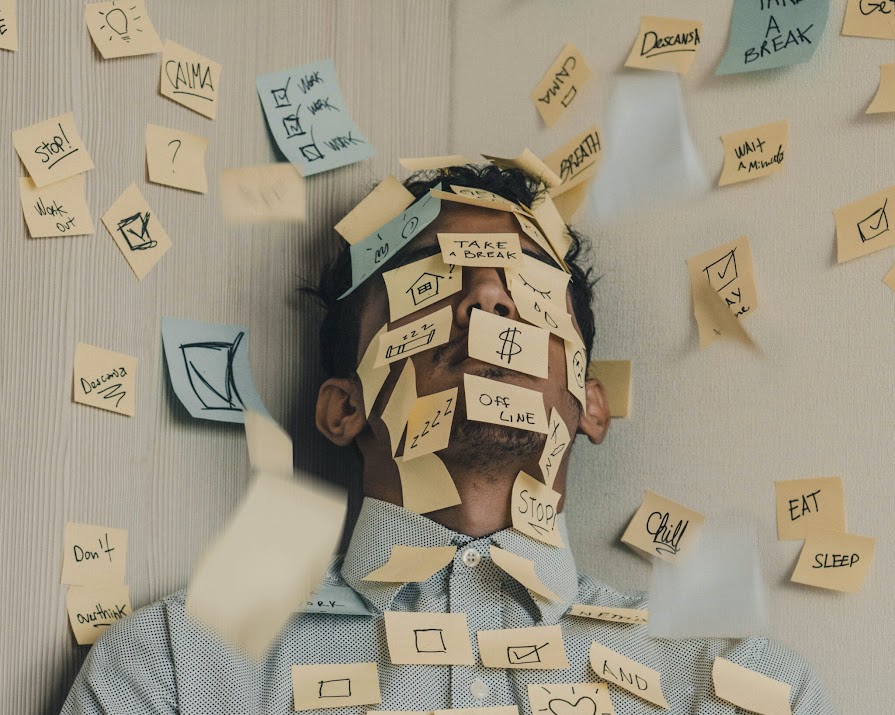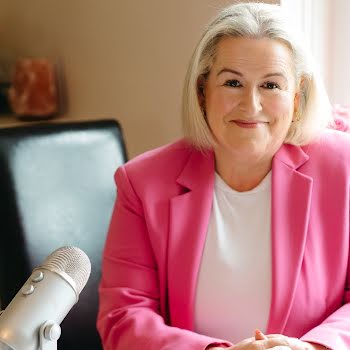
By Niamh Ennis
02nd Apr 2024
02nd Apr 2024
We are constantly looking for the tools to combat stress in our lives mostly because we know the negative impact it has on our mental, emotional and physical health. But have you thought about the second hand stress that you allow into your life that isn’t even yours to begin with?
It might sound like a made-up expression to some, but second-hand stress is an actual thing. I’d even be willing to bet that you have experienced it often, even if you didn’t know then just what to call it.
The reality is that we pick up on other people’s emotions and feelings more easily than we are conscious of. Stress is contagious, and being around certain people can set off your stress response, even when your own life is going smoothly.
None of us are immune to it; being surrounded by stressful people can have an impact on event the happiest of dispositions. Because our brains are wired for survival, we naturally pay a lot more attention to negativity than to positivity; our tendency is to focus on the negative, which in turn, makes us extra sensitive to sad or pessimistic feelings.
Where it begins
Picture this. You’re always trying to look on the bright side of things, but you’re surrounded by people who are constantly complaining and being gloomy. There’s a much greater chance that their negativity will dominate and override your positivity, thereby bringing you right down to their level. When you allow this to happen, by osmosis or by choice, the result is the same and you absorb their sensitivities and mindset to the extent that they become yours.
We tend to think of all feelings and emotions as starting deep inside of us but this isn’t always the case. Because we’re programmed to empathise and connect with others at a human level it makes us far more susceptible to taking on their worries and concerns as if they are our own.
The analogy that helps explain this phenomenon that I love the most is that of yawning. When you see someone yawn, neurons in your brain become activated, making you yawn. Your own brain connects with the fatigue and weariness energy of someone else and you respond appropriately. In a similar fashion, you can unwittingly adopt feelings of negativity, stress, anxiety and worry that originate not in you but in the minds of others. It’s noteworthy that when this happens, it does so, often without you knowing it – which is what makes this so difficult to eschew.
What happens
If you’re constantly feeling worried about someone else, then your thoughts will become more focused on their feelings and their consequences on you, or on your ability to cope or help. You may feel like you’re being required to offer constant reassurance, resulting in you avoiding expressing your own honest opinions and choosing to act inauthentically and unassertively, purely for fear of the reaction it could evoke You might even start to think that you’re the cause of their emotions and start feeling incredibly guilty.
How second-hand stress shows up every day
This all proves to be extremely challenging given today’s digital world and the speed with which we are being stimulated. Are you even aware that you have two types of attention: the things you consciously choose to attend to, and the things that demand you notice them? Take email notifications, as an example. They force our attention directly to our inbox, signalling to our brain that there’s something new to be concerned with, to worry about, even if you don’t need to reply right away. I call this my “addiction to immediacy” and I’m aware that notifications play to the surprise instinct in me, which means I have to stop everything and give my attention to it. I’m also well aware that it decreases my productivity!
Given all the horror and sadness happening in the world today, it’s pretty indisputable that constant exposure to the news has the instant potential to put us into a spiral of negativity. I’d heavily recommend that you avoid starting your day by scrolling through the news on your phone, but instead wait until you feel ready and better able to absorb it.
Road rage is another classic example of second hand stress. How often does someone else’s behaviour when driving their car immediately impact on yours? When you can’t get the image of that woman who wouldn’t let you out of your gate this morning and join the traffic just so she could be one car ahead? Or the person behind you in the supermarket huffing and puffing, rolling their eyes, checking their watch if you’re not moving fast enough for them?
Four tips to navigate second hand stress
1. Start by being aware of your own reactions in these situations and ask yourself, “Instead of losing my cool, could I have reacted differently and how?” Then try that and see how you feel. You may not succeed each and every time, but being observant of when it’s happening is a good place to start.
2. Identify who in your life triggers your stress response. Who, when you’re in their company, is prone to seeing a half-empty glass in front of them? Who perpetually finds something to complain about? Who will always find fault and who always has the potential to bring you down?
3. Set better boundaries. Once you’ve identified who this might be in your circle (and it possibly is more than one person) it would be advisable to try and limit your time with that person. Boundaries might be required in order to protect yourself and your energy. Remember that a boundary isn’t about you telling someone else what to do but about training yourself on how you allow their actions to impact on you. I totally get how hard it can be to extricate yourself from these situations, especially when it involves colleagues, friends or family members; but be mindful of how you let them affect you, your mindset and your behaviours.
4. Consider helping others with managing their own stresses and worries. We hear all the time about the need to be more compassionate to ourselves and others. We also know that we’ve honestly got no idea just what’s going on in other people’s lives; we don’t know the source of their stress or what’s causing them to be angry or defensive; so instead of adding to their pain, wouldn’t it be easier to show a little compassion? The fascinating thing is that when we choose this route it always ends up with us feeling much better too. In the words of the Dalai Lama, “If you want others to be happy, practice compassion. If you want to be happy, practice compassion.”
Niamh Ennis is Ireland’s leading change & transformation Coach and author of Get Unstuck who through her private practice, writings, programmes, workshops and podcast has inspired and helped thousands of people to make significant changes in their lives. She is an accredited Personal, Leadership & Executive Coach and the Lead Coach in the IMAGE Business Club. Follow her on Instagram @1niamhennis.
Photography by Luis Villasmil on Unsplash.
This article was originally published in November 2023.























